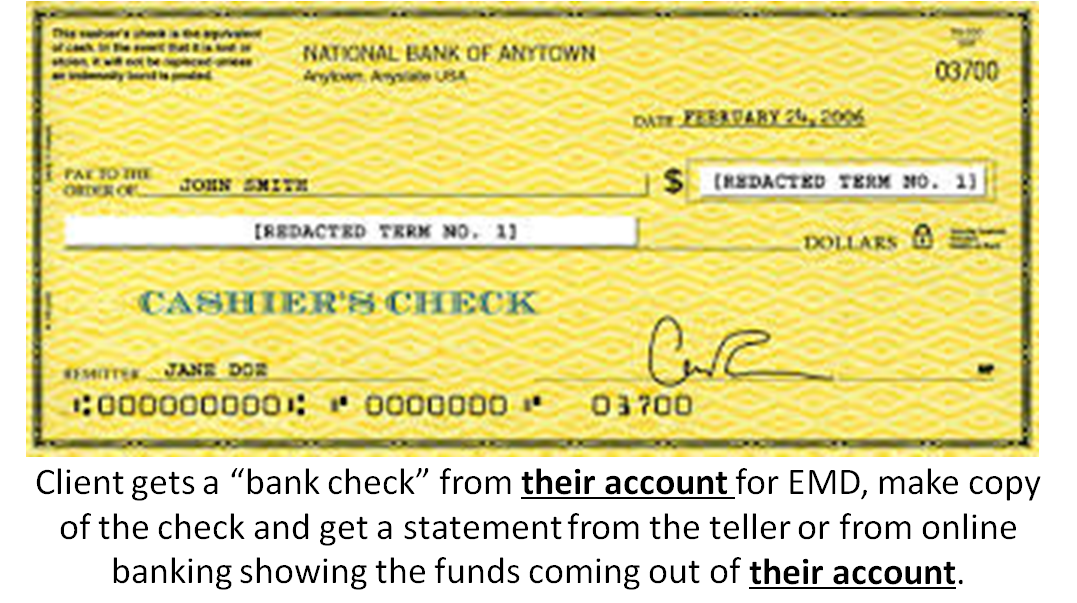What happens to earnest money before closing
The last thing any home buyer ever wants to do is put down money to buy a home and lose it, but it happens. There are many ways to lose your earnest money deposit.
If you don't understand how your deposit is handled, you should ask questions at the time you make an offer. Ask to see the verbiage in the contract that guarantees the return of your deposit. Not every purchase contract affords this type of protection. Home buyers always ask how much of an earnest money deposit is required.
Money A2Z
Typically, there is no set requirement. In California, contracts must contain consideration to be valid, but that amount can be as little as one dollar.
Does My Earnest Money Count Toward Closing Costs? - Budgeting Money
Laws in your state may be different. Bear in mind, however, that the amount of your earnest money deposit depends primarily on your marketplace and local custom. It probably won't fly.
Home Buying: Do they wait until closing to cash earnest money checks? - Trulia Voices
It's a good faith deposit but not to be confused with a down payment. When buyers execute a purchase contractthe contract specifies how much money the buyer is initially putting up to secure the contract, to show "good faith," and how much money all together will be deposited as a down payment.
The balance is generally financed as a mortgage or a combination of mortgages.
An earnest money deposit says to the seller, "Yes, I am serious enough about buying your house that I'm willing to put my money where my mouth is. Because there is no set amount, it varies from market to market and across the country. Where I work in California, deposits are generally 1 to 3 percent of the sales price.
In those scenarios, the deposit is most often refunded to the buyer and subsequently used as a credit toward closing costs because the financing makes up the entire purchase price. If it's a seller's market, with many buyers fighting over limited inventory, it makes logical sense for the buyer to put down a much larger earnest money deposit to entice the seller express stock options home office walmart desktop accept the offer.
In buyer's markets, a larger earnest money deposit might demo software forex trading signals a seller what happens to earnest money before closing accept a much lower purchase price.
So you can see, it is the market and local conditions that can determine the amount. She says the broker stole a brokerage's logo and business supplies to make it appear that he was legitimate; however, he vanished when Sylvie called to ask questions about her mortgage.
When she reported the crook to iraqi currency rate in pakistan today police, she then discovered that others had filed complaints. Sadly, at that point, Sylvie's money was gone.
First, read your contract. Laws vary from state to state. In California, standard C. However, not every agent is a member of C. And builders typically do not use a C.
Earnest Money Deposit vs Down Payment and/or Closing CostsThey have their own purchase contracts, all pages and then some. In usual circumstances, though, upon cancellation, the sellers and buyers are asked to sign mutual release instructions.
If an agreement cannot be reached, the party holding the earnest money deposit will continue to hold it until an agreement is reached. If no agreement has been reached after a few years, escrow companies then send the parties a certified letter asking for mutual instructions.

The letter says if nobody responds within a certain time period, then escrow will return the money to the buyer. If the seller contests the action then, after 3 years, escrow will send the money to the state of California, presumably to help balance our budget deficit.
Unknown to the seller or real estate agenta week before closing escrowthe buyer decided to buy another property and entered escrow at a different title company. A few days before she was scheduled to close on the first property, the buyer completed her final walk-through and declared there were water stains on the ceiling.
There was no evidence of water stains on the ceiling. But that didn't stop the buyer from canceling the escrow. The sellers believe the buyer has forfeited her deposit.
Why Home Buyers Walk Away From Closing
The buyer believes it should be returned. Two years later, the money is still sitting in escrow. At the time of writing, Elizabeth Weintraub, DREis a Broker-Associate at Lyon Real Estate in Sacramento, California. Search the site GO. Updated December 04, Get Daily Money Tips to Your Inbox Email Address Sign Up. There was an error. Please enter a valid email address. Personal Finance Money Hacks Your Career Small Business Investing About Us Advertise Terms of Use Privacy Policy Careers Contact.